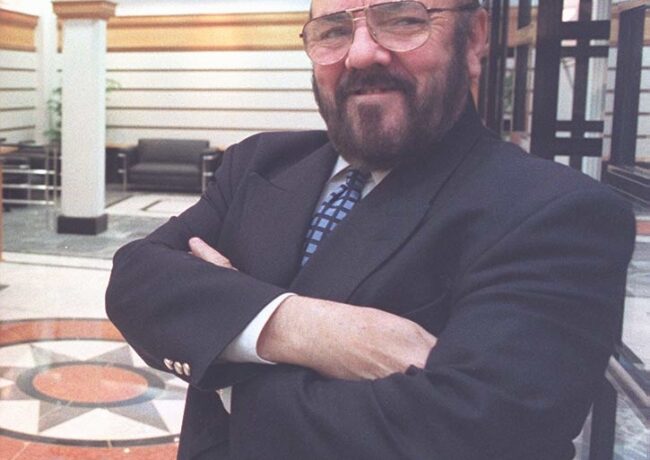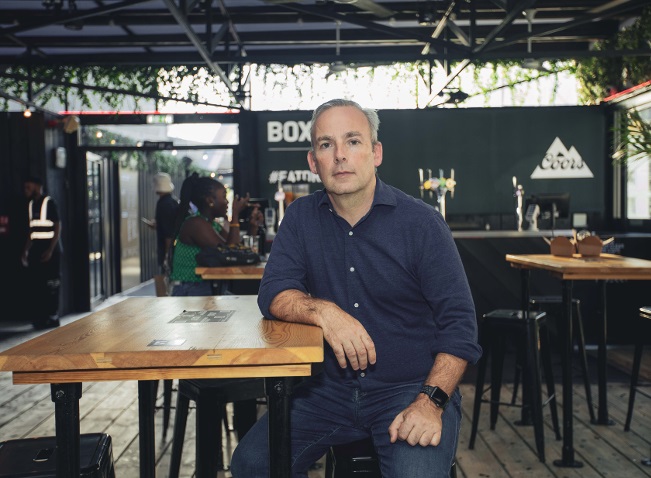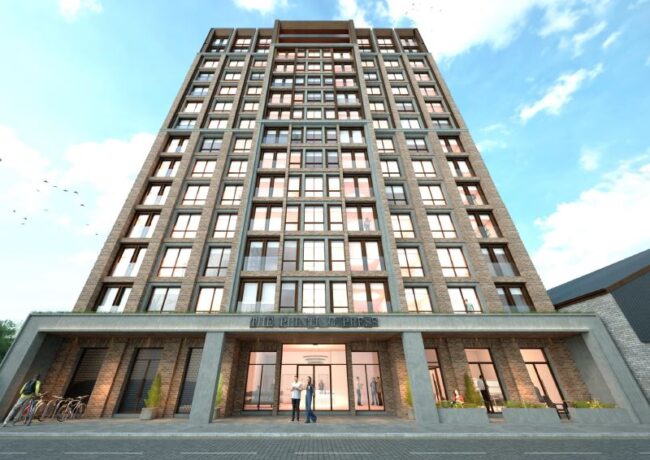Bill Davies completes posthumous sale of Chicago landmark
Controversial property speculator Bill Davies completed his last deal from beyond the grave – selling Chicago’s 2.7m sq ft Old Main Post Office, at huge profit for his family estate, five days after he died.
Davies was seen by many in Liverpool’s political and regeneration circle during the 1990s and 2000s as a scourge of development for the way he held large prime sites but did nothing with them. Supporters were more forgiving, saying he had an eye for a deal, guilty only of being more fond of dreaming up schemes than delivering them.
At one time he owned the old post office on Whitechapel and Victoria Street, as well as an option to develop Chavasse Park, and the vacant art deco office complex Exchange Flags. All were in need of drastic improvement but would require legal and governmental fights to buy them out of Davies’ control. Eventually all the sites would be released from his grip and become in turn part of Grosvenor’s Liverpool One shopping district, the Metquarter covered mall developed by Milligan and refurbished offices brought forward by UK Land & Property and Pochin at the Flags.
Davies died in Wirral at the age of 80 after contracting pneumonia in February, probably whilst flying across the Atlantic to and from the US and Barbados.
Davies’s Guernsey-based investment trust, International Property Developers North America, initially agreed a deal in March to sell the Old Post Office on Van Buren Street, Chicago and adjacent sites to New York-based investment group 601W Companies for a net price of $130m. But the deal only completed this month, five days after Davies died. His death was reportedly kept secret from the purchasers until the sale completed to avoid unnerving the acquiring party. Davies bought the property at auction for around $40m in 2009. Savills represented IPDNA. 601W Companies was represented by HFF.
In familiar style to his time in Liverpool, the local authorities in Chicago urged Davies to crack on with redevelopment but grand designs were all that were forthcoming. Detailed planning consents for designs by Chicago architects Antunovich Associates, incorporating an additional 7.5m sq ft, were obtained from Chicago City Council in 2013. Since then, IPDNA has researched the optimum uses for the Old Post Office and the adjoining sites fronting the Chicago River.
One of the people who visited Davies in Chicago to view the massive landmark he had acquired was John Milligan, founder of retail developer Milligan. Milligan said: “He was a character. He could be a very unpredictable negotiator. He would talk to lots of people about ideas for the old post office in Liverpool, which made you wondered if he really wanted to sell. I think he enjoyed owning property and thinking about how it could be developed, more than delivering projects and all that entailed.”
After starting a joint venture to develop Metquarter with Walton Group in 2003, Milligan and Davies came under pressure from Liverpool City Council to accelerate work and Milligan agreed to buy out his partner. He acquired the site for £17m in 2003 and eventually sold the completed scheme for £90m at the height of the market in 2007.
Milligan recalls: “After the deal was announced Bill called me to find out how much money we’d made from the sale. I said around £20m profit and he went a bit glum because we’d paid him less than that for the site. He said ‘ah but how much have you made personally’ and I said probably a third of that because I had financial partners. That cheered him up as he’d made more than me.”
In 2002, an out-of-court settlement saw Davies repay a £4.5m government grant awarded in 1992-94 after failing to carry out promised refurbishment work at the Exchange Flags blocks. The historic office buildings were largely empty for 20 years under Davies’ ownership until they were sold in two lots to UK Land & Property and Pochin in 2006 and 2007. The deal was brokered between UK Land boss Simon Parker and Davies in a basement bar in an Eastern European city by Alan Murch, a well-connected local agent who was one of the few people Davies trusted. Local MP Louise Ellman used a parliamentary adjournment debate to gather facts about Monaco-based tax exile Davies’ complex web of companies. Ellman was aided by Edwin Fleming, a retired archivist from Northern Ireland, living in Liverpool, who researched Davies’ dealings obsessively as a retirement project.
Ellman told Place North West: “I secured a parliamentary investigation into his misuse of grants for both Exchange Flags and what is now the Metquarter and Liverpool One. Bill threatened to sue me for libel. On the eve of the court case the government of the day was bringing for re-payment he paid up.
“I have always viewed that investigation and the result of enabling the sites to be developed as one of the most significant things I have done as an MP. Liverpool was in need of development and he was sitting on these key sites and holding them back.”
Ellman added that Davies’ influence was powerful around the city: “During that time all sorts of people approached me and asked me to drop the investigation. That just made me dig in more.”
Over at Chavasse Park, next to the Albert Dock and now flanked by apartments and the Hilton hotel, Davies paid the council £20,000 in the mid 1990s for an option to develop the site. He hired US architect Philip Johnson to produce a wave-shaped retail scheme dubbed ‘the slug’. After several legal challenges deputy prime minister John Prescott ruled against Walton Group and the option was removed.
Rod Holmes, project director at Grosvenor, led the Liverpool One development and was on the other side against Davies during those court battles. But he said: “I liked him, and he liked me. We always got on, even when we were in the thick of it and things got quite confrontational between the lawyers. He saw me at a very grand black tie do in Grosvenor House in London during that time and walked through the room with Sue [Sadler, his spokeswoman] like a big ship and came across to see me and we stood and hugged and chatted. People around thought it was very strange given the extraordinary situation we were in.”
Charles Hubbard of property advisors Matthews & Goodman represented Davies for many years, including the sale in Chicago. He said: “Bill had an ability to see potential in property that others could not and sometimes that led to those unaware of all the facts being critical of his approach to property risk taking. However, his legacy is that he was the person to take risks and move projects forward where others would not dare.”
William Charles Davies (1935 – 2016), leaves a widow Jean, two daughters, grandchildren and great grandchildren.





Charlie Hubbard is the hero here – harnessing the the man – and for the benefit of Liverpool. Without Charlie none of these would have happened.
By Elder Statesman
A likeable rogue
By Anonymous
An excellent article about one of life’s characters. I was one of his several bank managers back in the ’90’s and it’s fair to say that he could be something of a challenge. But difficult to fall out with.
By Ian Jones
I agree with Elder Statesman, Charles Hubbard is a one off, last of the true old school…
By Jabba D
End of an era.
By Leopard Seal
With due respect to his family for their loss but his business practices sounded like a nightmare, holding Liverpool’s development back years.
By Anon
is this the guy who got arrested in Devon Street?
By Bob Dawson
Let not forget he also had a son Spencer.
By Anonymous